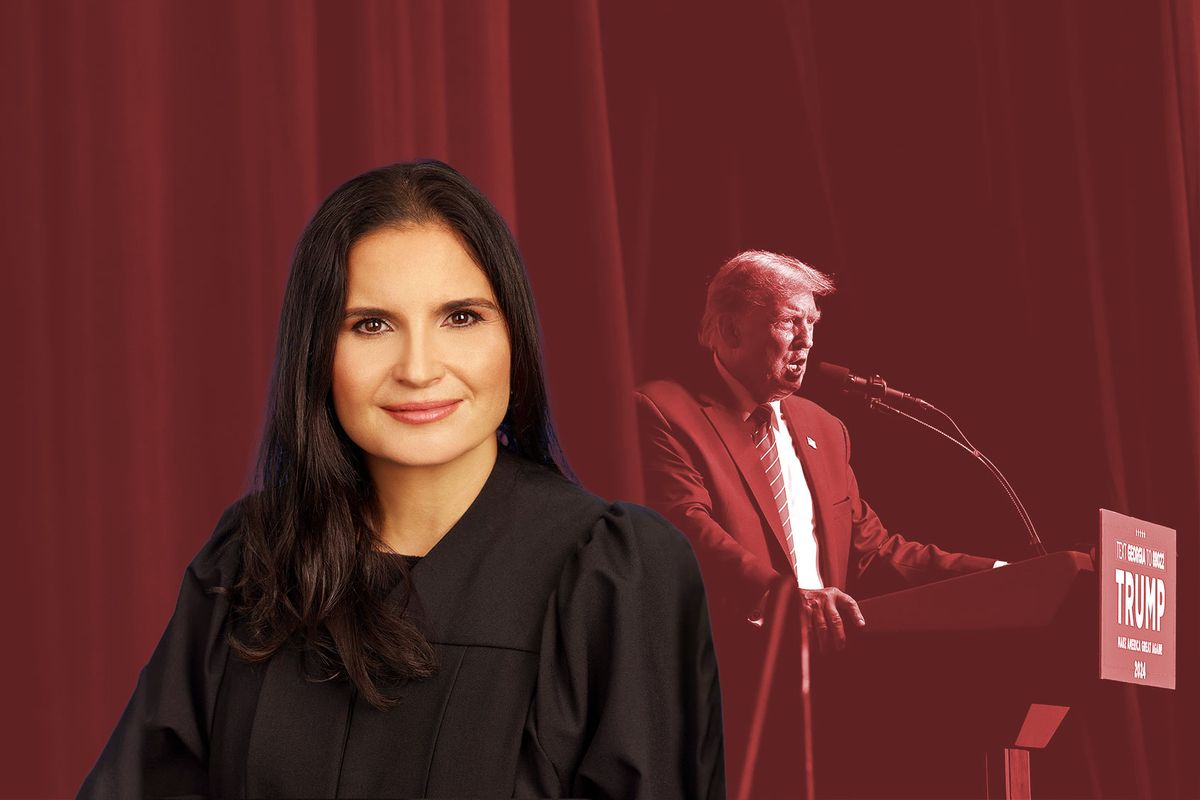Former judges are “baffled” over U.S. District Judge Aileen Cannon’s orders this week in former President Donald Trump’s classified documents case, The Washington Post reports.
Cannon on Monday ordered Trump’s lawyers and special counsel Jack Smith’s team to submit competing sets of potential jury instructions around competing interpretations of the Presidential Records Act, which requires presidents to turn over their records to the National Archives. Trump’s lawyers argue the PRA gave Trump the right to keep classified materials at his Mar-a-Lago residence.
“In my 30 years as a trial judge, I have never seen an order like this,” former federal Judge Jeremy Fogel, who now runs the Berkeley Judicial Institute, told the Post, arguing that Cannon may be putting “the cart before the horse.”
Judges typically make rulings on the key laws in a case and set jury instructions closer to the trial.
“The more innocent interpretation is that she is just trying to get a sense of what the practical implications are if she decides one way or the other on the legal issues,” Fogel said. “The less charitable view is that she should decide the legal issues first and then decide how she should implement the law in the case.”
Nancy Gertner, a former federal judge in Massachusetts, told the Post that what Cannon “asked the parties to do is very, very troubling.”
“She is giving credence to arguments that are on their face absurd,” Gerner said. “She is ignoring a raft of other motions, equally absurd, that are unreasonably delaying the case.”
Gertner said Smith should take the rare step of seeking to remove Cannon from the case.
“I think that the better route is for Smith to move to recuse her now — listing all of her rulings that make little sense, the delays, rulings so far out of the mainstream that they clearly suggest bias,” Gertner told the Post.
But former prosecutors argue that the legal standard for recusal is so high that it is unlikely to happen.
“It’s not enough to say this judge has ruled against my case several times, therefore they must be biased. That’s not going to do it,” former U.S. Attorney Barb McQuade told the Post. “I’d be surprised if an effort to remove her would be successful, and that’s a bad look for the government,” she added while noting that Cannon’s pre-trial rulings have been “premature and baffling.”
We need your help to stay independent
Jason Baron, the former director of litigation at the National Archives, said that Cannon seems to repeatedly conflate the Presidential Records Act with the Espionage Act, which criminalizes unauthorized sharing or handling of national security information. The PRA does not affect an Espionage Act prosecution, he said.
“There is no ambiguity that the classified documents at issue in this case are presidential records,” Baron told the Post. “He wasn’t indicted because he took newspaper clippings. He was indicted because he took documents that were marked as classified.”
Baron added that Cannon appears to be embracing a fantastical view of the law.
“Like the queen in ‘Alice in Wonderland,’ Judge Cannon appears to be asking the jury to believe at least two impossible things before breakfast,” he told the outlet. “First, that a president has unfettered discretion to decide that documents marked ‘top secret’ are his own personal records, just because he decided to keep them for himself. And second, that a president can avoid criminal prosecution under the Espionage Act because he decided that classified records were really his under the PRA. In both cases, the judge profoundly misinterprets the law.”
Want a daily wrap-up of all the news and commentary Salon has to offer? Subscribe to our morning newsletter, Crash Course.
Former federal prosecutor Kristy Greenberg told MSNBC on Thursday that she was willing to give the “inexperienced” judge “the benefit of the doubt initially.”
"But she's getting it dead wrong. Every time she gets it dead wrong, it's always in Donald Trump's favor,” Greenberg said. “The last month or so, we have a ruling where she is ordering the identities of witnesses to be unsealed. There is no trial date, there is no need to be unsealing the identities and statements of witnesses who could be harassed and have a risk of harm. Then you have her recent non-ruling that she's going to kick the can down the road on whether or not the Espionage Act is vague. It's not vague, it's been well-established law, the terms were clear... That was a bad ruling. Then the third strike is the recent jury instructions, which, again, we don't have a jury."
Greenberg agreed that nothing in the Presidential Records Act gives Trump authorization to have classified documents in violation of the Espionage Act.
“It's a red herring,” Greenberg said. “If it were a law school exam, she'd be failing."
Read more
about Judge Aileen Cannon



Shares